Avid ultra-marathon runner and psychology student Simon Wheatcroft, 31, trains solo on open roads without a guide – even though he has been officially blind since the tender age of 17.
Simon, who lives in Doncaster, England, has also tackled a 100-mile race with a mere five months of training.
Read on to find out how this ultra-marathon runner does it, in an interview that I had with him.
Simon, can you tell us more about the illness that took your sight?
It’s called Retinitis pigmentosa but generally people call it RP (a condition whereby there is damage to the retina – affecting the conversion of light images to the brain). I was diagnosed probably at 10 or 11 years old. At about 17 or 18 years old, I was registered as blind.
How did you initially feel about this?
When I lost my sight, I wasn’t sure what I was going to do. I could not see a future without sight. It was very hard for me around the ages of 18 to 22 – which was when you would get a driving licence, a car and your freedom and I lost out on all of that.
I just struggled for four to five years after that. But around the ages of 25 to 26, I started to look at what changes I could make to mitigate the fact I was losing my sight.
How do you get around?
I refused to use a cane until I was about 27 years old. To move I was just feeling my way around. Finally, I had to resort to the cane because the daily commute became quite impossible without one. I have got a guide dog now and without it, there is no way that I can get around. Right now, I wouldn’t even be able go to the shop without my dog to pick up a packet of Snickers because I can’t see what’s on the shelf and where it is in the shop. It comes with me to the university, to the shop and to the restaurant.
When and why did you initially take up running?
I started running in 2010. Basically I had left my job to go for a total career change. To do that, I needed to go back to University. So there was a big gap between leaving work and starting university and I was getting really bored. I was used to getting up and going to work everyday but suddenly I had nothing to do.
So I decided to spend this time getting fitter and running was very accessible to do. You don’t need much equipment and I was trying to save money for university. So one day I just decided to go outside to a football pitch by my house and run between the goalposts and it just started from there.
What is your speed?
I am not a fast runner. Others are a lot faster.
At my first completed ultra marathon race, the Nottingham 50km (31 miles) two years ago, my timing was 7hours 42minutes 58seconds. My foot got caught in a rabbit hole and I twisted my knee quite badly though – so my time fell off a cliff.
Generally my ultra pace is: flat roads – 6.2mph; big accent roads – 5mph and trail – 5.5mph
How did you train to run independently?
I live near an airport and they had not finished building all the roads then, so they were closed and there were no people around there. My wife dropped me off at one of the closed roads and the plan was to run up and down this. It was totally safe and nothing could get near me and it was a great place to run. So I was doing that for a few weeks and I began to use Runkeeper.
But then, I was running up and down so many times on the same closed road that I started to know the ordeal kicking in at the same point by default. For example, I would hear some audio saying, 0.3 miles and then I would hit something such as a dip on the road at the same time. So I would know to avoid it next time.
What gave you the idea to run on open roads despite your blindness?
I was getting too bored running along the exact same piece of road, which happened to be next to a dual carriageway (divided highway). So one day, I thought that I would step out onto this carriageway and just “hook” myself onto the side of the road and ran down it. That was the point when I realised that I could run on roads.
The ones that I was running along were set at national car speed limits, of about 60 to 70 miles per hour. I did feel scared at first when I did it, though. When I got to the end of the road on my first attempt, I just broke down in tears because I could not believe that I had actually done it. I didn’t think it was possible and then I thought I would just go for it and I did it.
I understand that you’re able to memorise sections of your route for running? How do you do this?
I spend time using Runkeeper. For example, when it says I am 0.6 miles into my run, I may encounter a dip in the road and when I feel this, I would know to turn right. And the next time, I would know to prepare for this. So I just pair the audio feedback from Runkeeper with what I am feeling and I am usually able to figure out what is going on.
As well, if there are bushes on the right and it is grass on the left hand side, I can use this to memorise my route. If I am feeling grass, I know I have gone too far to the left and if I am feeling bushes, I know I am too far to the right. So I just learn the feel of things. The pavement may also be arched with one part lower and the other part, higher. So then I know where I am on the pavement.
I ran into posts and things like that at first but I eventually learnt the route, because I was determined to. It took about two to three months before I stopped bumping and running into things.
How do you cope with changes to a route?
Changes happen all the time and when these occur, I need to adjust the route. For example, on an open piece of pavement, there could be things like road works and the first time I would just run into it but with the second try, I would know it is there so I would just avoid it. For example, let’s say at 0.4 miles there is an obstacle so when Runkeeper says 0.3 miles, I will move to the other side of the pavement to avoid hitting the obstacle. That’s how I do it.
How do you avoid bumping into objects and falling down?
You could say my ability to map things in my mind is quite good now. I can visit a place and I have a good mental representation of the layout in my head and I think that this has allowed me to run and walk independently. For example, in terms of traffic lights, I know where these are when I have encountered them once. So I just avoid them next time along the route.
Whether I am running or walking, I have never fallen down too. I have stumbled and run into things, but I have never actually lost my balance. Even when I run into a post, I hit the post but I never actually fall over, because I have reasonably good balance.
When and what initially gave you the idea to tackle ultra marathons?
The last book I was ever able to read was one by a runner called Dean Karnazes. Basically one day, he just decided to see how far he could run and he ran 30 miles. Now he can run hundreds of miles. I just thought to myself that if he can do it, so can I. So I decided to have a go. The furthest I had run up until this point was 12 miles. So I went home and entered a 100-mile race. My wife asked me, why didn’t you enter a marathon? I knew I could run a marathon because it was just over double of what I run whereas 100 miles seemed like something that was not even possible. So I went for the challenge rather than going for something that I could do.
How did you cope with your first ultra marathon with I understand, just five months of training?
It was the Cotsworlds 100 Miles race and the five months of training alone, killed me! It was very difficult. I was coming home and passing out on the bathroom floor and then crawling into bed to sleep and having to wake up and do it again the next day. It was very difficult and there is no way that you should even attempt to train for such a long race in such a short period of time. But mentally, I felt great. I could continue to push myself and made myself train as hard as possible because when you are running, you can always think of those hard training sessions and keep going.
During the actual race, it was going really well until mile 27. Then it just became very difficult and it rained for eight hours from that point and it became so hard. The route that I run is flat but the race I had chosen had a lot of hills so I wasn’t used to doing this. It got to mile 50 and I had an emotional breakdown and I was so close to tears. It was so hard being outside in the cold rain and something I had never experienced in my entire life. I spoke to a few people and they told me to just stop.
But I told myself that I could not live with it if I pulled out. So I stood up and I managed to run another 33 miles before my legs could not support my own body weight any more. And then I pulled out because I could not run any further after 24 hours of racing. But I made it from zero to 83 miles with just five months of training. I could accept this, as it was a real achievement.
What are some of your biggest challenges when running and how do you overcome these?
I think the training is a challenge – it takes massive amounts of time. Being blind and going to university, it takes me longer than someone else to do my university work. So the time constraints for training are incredible. I need to be really efficient in getting things done.
I also need to make sure that the equipment that I am using is very reliable. For example, I was using the hydration backpack with a straw that you suck water through. One day after five hours on a run, the valve broke and I couldn’t see how to fix the valve and there was no way I could get the water out of the pack. So the equipment that I use, can be a challenge.
When racing, I also have to dodge everyone to make sure that I do not bump into them. I am able to help dodge runners with the help of a guide. They usually say, Simon run straight or Simon go to your left and push me left or right to ensure I am dodging the next person. Generally blind runners use tethers (something for a guide and a runner to hold onto – such as a boot string) in races so you are physically tethered to your guide runner but I don’t like being tethered to someone so I just run next to the guide and as long as our shoulders or elbows are touching, they can move me around by touch. My guide has to be comfortable with that.
Do you always have a guide during races?
I have run every single race with a guide. It’s difficult but I have to. For example, I ran this big race in England with 40,000 people taking part. So I needed a guide. In the ultras, I will use multiple guides cause it’s quite hard to find someone who can run the whole race. I am looking into running a race alone in 2015 though. It is a 160-mile race that I am attempting to do solo without a guide. It will just be me with my technology and I will see whether I can run that distance. It is going to be a solo run and a few pieces of technology would help me.
How do you feel that ultra running has changed your life?
Embarking on this adventure has shown me that if you adapt and try hard, you can achieve anything that you want.
What are your running projects next year?
Early next year, I’ve got in mind the Hardmoors 26.2 mile trail marathon and the South Downs Way 50 miles. I also plan to run in the New York marathon next year. I am running from Boston all the way to New York and then arriving at the start line of the marathon to take part. I want to do that run because Runkeeper made me believe that all this is possible and since they are based in Boston, I am going to start from Runkeeper headquarters there. The New York marathon is one race I have always wanted to take part in ever since I was young because you go to the city, go through all the bridges and finish at the park. It has been a childhood dream to do so.
Could you share some tips on ultra-marathon running?
If you get tired, just walk for a couple of minutes and get you breath back and then carry on running. Use the run-walk strategy and you will finish the race a lot quicker than you would have done if you had run the entire race. If you are incredibly fit, you could sprint the whole race but if you are just starting out, the run-walk strategy is a good way to become an effective runner. There is definitely no shame in walking – which is just a tactic to do well. When I first started, I would run for 25 minutes and then walk for five minutes and then eat something. If you are staying out running for six hours, you need to eat, so I have make sure that I eat something every 25 minutes. Yeah, I have a very regimented run-walk strategy because it breaks up the run and allows you to catch your breath.
Any last words that you would like to share with readers?
Ultra-marathon running is a form of sport and a great opportunity to explore what your physical and mental limits are. If you love eating, it is also the sport for you because you can eat relentlessly. When I am doing long training on Saturdays, I burn three and a half thousand calories and lose at least a pound in body weight on that one run so I can get away with eating a massive amount of junk food so I’ll eat an entire cake. My diet though when I am not running is quite good. For me, I also don’t believe in tapering. A lot of people say that it gives your body a chance to recover so you’ll feel fresh for the race, but the reason I don’t, is that I train at the ultra distance so I am used to running when tired.

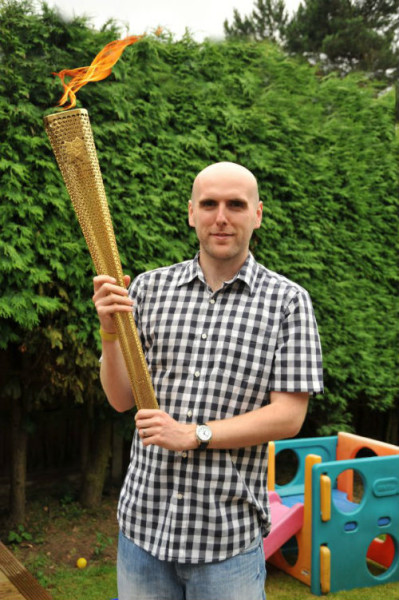

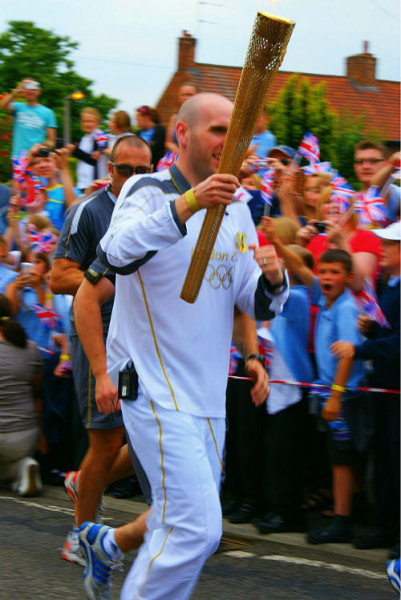
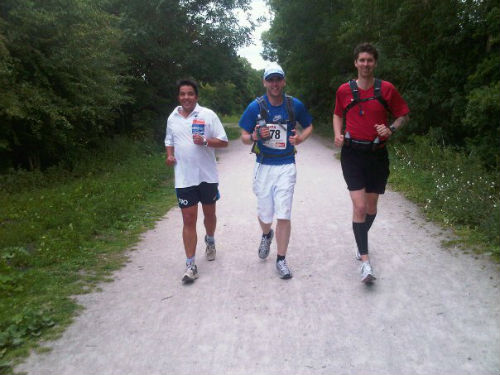
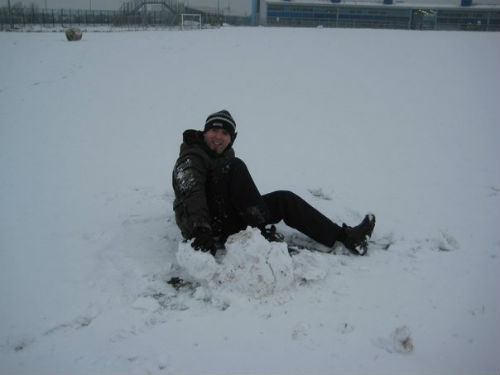
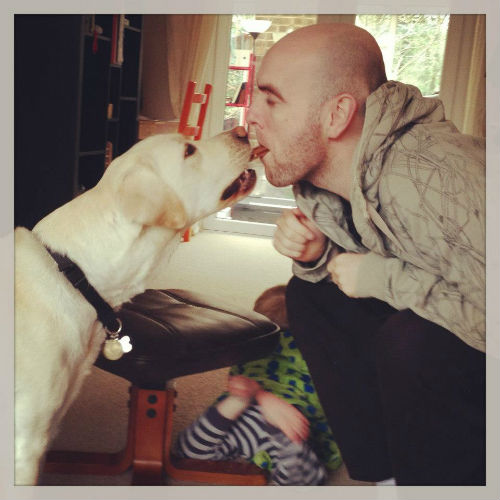
Leave a Comment